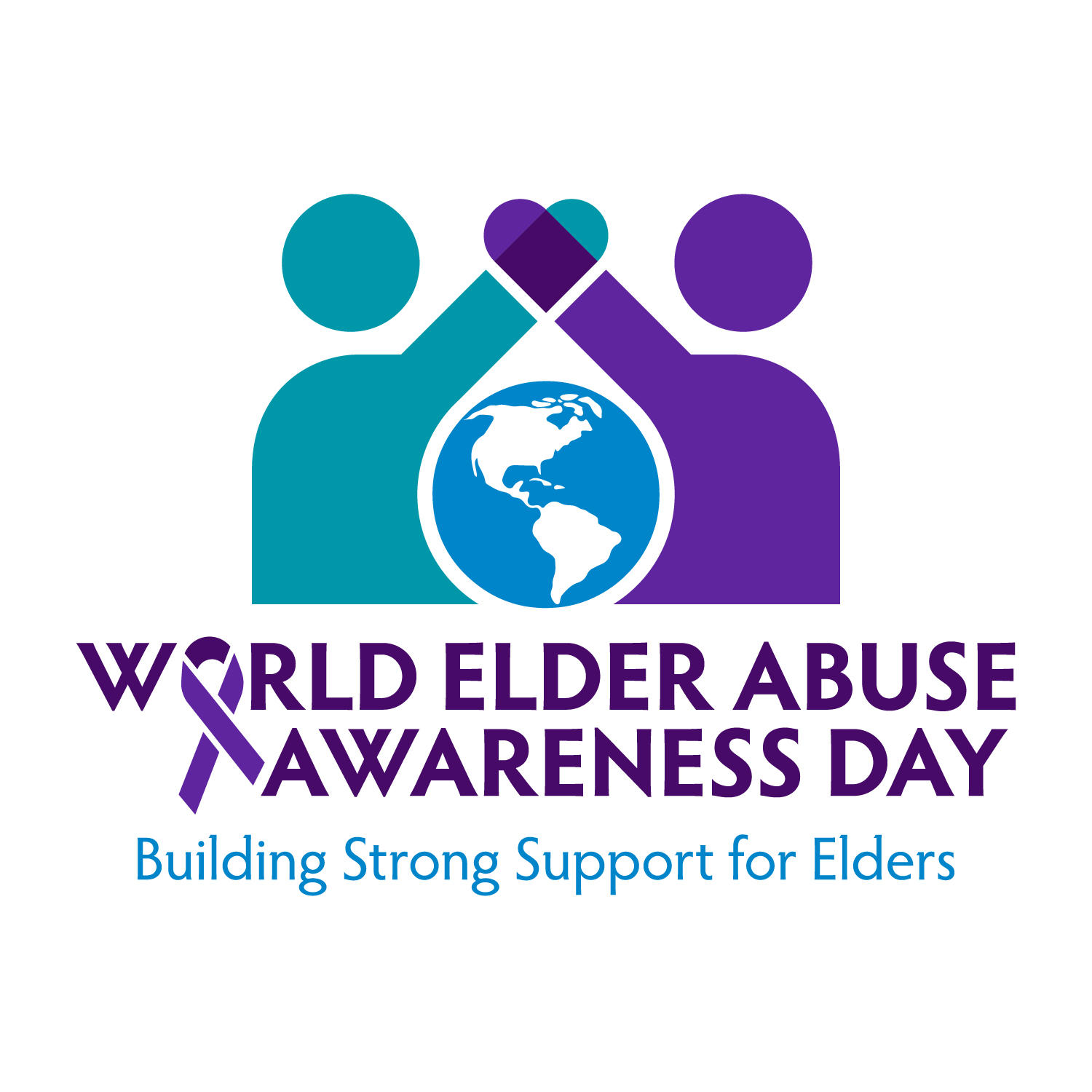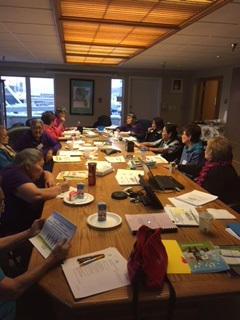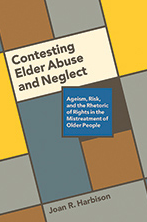Blog
- Details
 Join CNPEA and many other Elder Abuse prevention stakeholders, including members of the Elder Justice League, for the next #NCEAnow Twitter Chat on Thursday, April 20th 2017 at 2pm EST.
Join CNPEA and many other Elder Abuse prevention stakeholders, including members of the Elder Justice League, for the next #NCEAnow Twitter Chat on Thursday, April 20th 2017 at 2pm EST.
Come ready to share your WEAAD event planning tips & tricks or related questions. This is a great opportunity to share and promote your organization or agency's WEAAD plans for Canada and the US (and beyond!). You can also send details of your WEAAD event to CNPEA via our event form. If you are in the US, add your event information to the NCEA's event map.
Here are the questions that will be addressed during this one-hour Twitter event:
Q1: What does #WEAAD mean to you? Why is #WEAAD important to you?
Q2: Is #WEAAD recognized in your community? How do you make #elderabuse compelling to various audiences?
Q3: How do you plan and host a successful #WEAAD event?
Q4: What WEAAD activities are you planning this year? How do you ensure these activities make lasting effects in your community?
Q5: What does your organization do throughout the year to address #elderabuse?
Q6: How do you capture the impact of yearly #WEAAD events and efforts?
Never done this before? Not to worry, NCEA, the host of the Twitter Chat series #NCEANow, will run through all the basics at the start of the event! All you need is a Twitter handle!

- Details
By Charles Bergeron
Senior Advisor, Patient and Public Engagement
Canadian Medical Association
Dear member of the Alliance for a National Seniors Strategy,
This past week, Marc Serré, the Member of Parliament (MP) for the Ontario riding of Nickel Belt, tabled a motion in the House of Commons calling on the federal government to “ensure quality of life and equality for all seniors [through] the development of a National Seniors Strategy.”
- Details
UBC Press recently announced the publication of Contesting Elder Abuse and Neglect by Joan R. Harbison.
"Drawing on twenty years of original, interdisciplinary research, Contesting Elder Abuse and Neglect explores how and why the mistreatment of older people became known as “elder abuse and neglect” and the consequences of this designation.''
The paperback is not yet released to the general public. If you wish to purchase the paperback for professional development purposes, you can fill out this advance paperback order form and return by email.
ABOUT THE BOOK
''The mistreatment of diverse older people in varying ways is categorized in many societies as "elder abuse and neglect," yet this concept has not been subjected to rigorous critical inquiry. Instead, it has most often represented the interests of professionals, academics, and governments, while policy makers and researchers frequently overlook or disregard the complexity of issues that fall under this designation.
The first comprehensive, scholarly critique of the subject, Contesting Elder Abuse and Neglect questions existing assumptions about the mistreatment of older people. It explores how and why the concept of "elder abuse and neglect" came to be and shows how this catch-all term masks fundamental problems concerning the mistreatment of older people, their place in society, and how they see themselves. Joan R. Harbison and her colleagues expose how the abilities, needs, and wishes of older people who are perceived as victims are ignored or go unheard and how the supposed solutions to abusive treatment can take their toll on those people they were originally intended to protect.
Grounded in twenty years of interdisciplinary empirical research, Contesting Elder Abuse and Neglect is an important, much-needed contribution to the literature, which supports and encourages new thinking about issues concerning older people.''
Source: UBC Press
- Details
By Kathy Majowski
My career in health care has taken me down roads that I didn’t expect or plan. Whether it was in long-term care, where I was providing support and care as a Health Care Aide (or Personal Support Worker in Ontario), in my nursing work that connected me to people in acute care and community settings, or in my current position as a staff educator in a 197-resident long-term care facility, many of these roads have put me in contact with older adults living with various stages of dementia. Although I’ve always tried to keep an open mind, “walk in someone else’s shoes”, and really try to understand what my patients/residents/clients were going through, I realized last week that I never truly understood what living with dementia might feel like.
On the advice of my manager and various staff members at my organization, I made arrangements with the Alzheimer’s Society of Manitoba to come to our facility and host a “Virtual Dementia Tour” for Alzheimer’s Awareness Month. I’d heard about this experience throughout my career but had never had the opportunity try it myself. The Virtual Dementia Tour is a 10-minute tour through what it might feel like to live with dementia while also managing common deficits associated with aging. Tour participants go through a staged room in pairs, outfitted with equipment that provides simulated deficits in vision, tactile sensation, and mobility (similar to living with arthritis in the finger joints). Each participant is asked to complete 5 simple tasks (set the table, fold towels, pair socks, etc.) while in a room with low lighting, a strobe light and “white noise” conversations coming from a small radio.
What stood out for me about the experience:
- Wow! Those tasks were hard to complete for a (mostly) cognitively intact person like myself!
- How much the conversation coming from the radio reminded me of conversations that are happening in our dining rooms. It’s not surprising that elders with dementia get overwhelmed in large groups or by what cognitively intact people consider normal social experiences.
- It’s confusing trying to THINK when there are people chatting around you!
- The anxiety that I was starting to feel, not being able to clearly see the room around me or the clothing in front of me well enough to pair socks!
So what does this have to do with Elder Abuse?
One of the roots of elder abuse is a poor understanding of the capabilities of the other person combined with learned, subtle or overt ageism. A caregiver interacting with a person who is living with dementia can become more easily frustrated if their expectations are beyond what the person is capable of, and this can have disastrous outcomes. The World Health Organization has acknowledged that elder abuse is related to the prevalence of ageism in our society and is more frequent in families where there is a diagnosis of dementia. In addition, the National Centre on Elder Abuse (in the USA) has identified that education for caretakers focused on behaviour management techniques (including learning to recognize what the care receiver is experiencing) can be helpful for carers to understand that these behaviours have meaning and “reduce the common tendency to take disturbing behaviours personally”.
Experiences like the “Virtual Dementia Tour” are eye-opening; many members of my staff left the tour with an “a-ha” expression on their face, from realizations that they hadn’t experienced in all of their years working in long-term care. I believe that the development of and participation in these experiential workshops will have a huge impact on our individual understanding of the battles that other people face on a daily basis, and that this empathy will help to decrease the instances of elder abuse in our communities.
About the author Kathy is a degree-prepared nurse who began her career in health care 17 years ago. In that time she has worked in various roles, including as a nurse, support worker, staff educator, clinical and classroom instructor, educational program developer, and subject matter expert. Kathy’s career in nursing has included experience in acute and long-term care facilities, as well as work in a northern Manitoban community where the nursing station functioned as both a clinic and trauma stabilization centre. Although caring for seniors has always been a part of Kathy’s career, her current role as the Staff Educator in a long-term care facility has brought her a greater awareness of some of the issues that seniors face. Kathy is on the board of directors of CNPEA since September 2016.
Kathy is a degree-prepared nurse who began her career in health care 17 years ago. In that time she has worked in various roles, including as a nurse, support worker, staff educator, clinical and classroom instructor, educational program developer, and subject matter expert. Kathy’s career in nursing has included experience in acute and long-term care facilities, as well as work in a northern Manitoban community where the nursing station functioned as both a clinic and trauma stabilization centre. Although caring for seniors has always been a part of Kathy’s career, her current role as the Staff Educator in a long-term care facility has brought her a greater awareness of some of the issues that seniors face. Kathy is on the board of directors of CNPEA since September 2016.
- Details
By Carly Aasen
The Gwich’in Translation Revitalization project is taking the It’s Not Right! Neighbours, Friends & Families program developed by the University of Western Ontario and translating the material into Gwich’in: GWIK’IT GÒON’LIH KWÀH. 
A group of ten Gwich’in women from Fort McPherson, Aklavik, Tsiigehtchic, and Inuvik, met in Inuvik late November to complete training to deliver the materials in Gwich’in to their home communities. Two elders from each community will work together to be teachers and leaders in how to support people who may be older adults who are experiencing abuse.
Ann Firth-Jones, President, NWT Seniors’ Society initiated this project in early 2016, Sarah Jerome, a Gwich’in elder, is the Team Leader. This project is funded by New Horizons for Seniors – Community Engagement Program and supported by the Gwich’in Tribal Council, Ingamo Hall Friendship Centre, NWT Seniors’ Society, and the community of Inuvik.
Please contact Barb Hood, Executive Director of the NWT Seniors’ Society with any questions or for further information.
Page 37 of 55



















